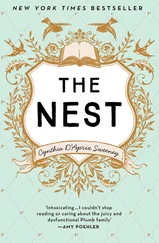Cynthia Ozick - The shawl
Здесь есть возможность читать онлайн «Cynthia Ozick - The shawl» весь текст электронной книги совершенно бесплатно (целиком полную версию без сокращений). В некоторых случаях можно слушать аудио, скачать через торрент в формате fb2 и присутствует краткое содержание. Жанр: Современная проза, на английском языке. Описание произведения, (предисловие) а так же отзывы посетителей доступны на портале библиотеки ЛибКат.
- Название:The shawl
- Автор:
- Жанр:
- Год:неизвестен
- ISBN:нет данных
- Рейтинг книги:5 / 5. Голосов: 1
-
Избранное:Добавить в избранное
- Отзывы:
-
Ваша оценка:
- 100
- 1
- 2
- 3
- 4
- 5
The shawl: краткое содержание, описание и аннотация
Предлагаем к чтению аннотацию, описание, краткое содержание или предисловие (зависит от того, что написал сам автор книги «The shawl»). Если вы не нашли необходимую информацию о книге — напишите в комментариях, мы постараемся отыскать её.
The shawl — читать онлайн бесплатно полную книгу (весь текст) целиком
Ниже представлен текст книги, разбитый по страницам. Система сохранения места последней прочитанной страницы, позволяет с удобством читать онлайн бесплатно книгу «The shawl», без необходимости каждый раз заново искать на чём Вы остановились. Поставьте закладку, и сможете в любой момент перейти на страницу, на которой закончили чтение.
Интервал:
Закладка:
Cynthia Ozick
The Shawl
Stella, cold, cold, the coldness of hell. How they walked on the roads together, Rosa with Magda curled up between sore breasts, Magda wound up in the shawl. Sometimes Stella carried Magda. But she was jealous of Magda. A thin girl of fourteen, too small, with thin breasts of her own, Stella wanted to be wrapped in a shawl, hidden away, asleep, rocked by the march, a baby, a round infant in arms. Magda took Rosa’s nipple, and Rosa never stopped walking, a walking cradle. There was not enough milk; sometimes Magda sucked air; then she screamed. Stella was ravenous. Her knees were tumors on sticks, her elbows chicken bones.
Rosa did not feel hunger; she felt light, not like someone walking but like someone in a faint, in trance, arrested in a fit, someone who is already a floating angel, alert and seeing everything, but in the air, not there, not touching the road. As if teetering on the tips of her fingernails. She looked into Magda’s face through a gap in the shawl: a squirrel in a nest, safe, no one could reach her inside the little house of the shawl’s windings. The face, very round, a pocket mirror of a face; but it was not Rosa’s bleak complexion, dark little cholera, it was another kind of face altogether, eyes blue as air, smooth feathers of hair nearly as yellow as the Star sewn into Rosa’s coat. You could think she was on of their babies.
Rosa, floating, dreamed of giving Magda giving away in one of the villages. She could leave the line for a minute and push Magda into the hands of any woman on the side of the road. But if she moved out of line they might shoot. And even if she fled the line for half a second and pushed the shawl-bundle at a stranger, would the woman take it? She might be surprised, or afraid; she might drop the shawl, and Magda would fall out and strike her head and die. The little round head. Such a good child, she gave up screaming, and sucked now only for the taste of the drying nipple itself. The neat grip of the tiny gums. One mite of a tooth tip sticking up in the bottom gum, how shining, an elfin tombstone of white marble gleaming there. Without complaining, Magda relinquished Rosa’s teats, first the left, then the right; both were cracked, not a sniff of milk. The duct-crevice extinct, a dead volcano, blind eye, chill hole, so Magda took the corner of the shawl and milked it instead. Se sucked and sucked, flooding threads with wetness. The shawl’s good flavor, milk of linen.
It was a magic shawl, it could nourish an infant for three days and three nights. Magda did not die, she stayed alive, although very quiet. A peculiar smell, of cinnamon and almonds lifted out of her mouth. She held her eye open every moment, forgetting how to blink or nap, and Rosa and sometimes Stella was ravenous, a growing, child herself, but not growing much. Stella studied their blueness. On the road they raised one burden of a leg after another and studied Magda’s face. “Aryan” Stella said, in a voice grown as tin as a string; and Rosa thought how Stella gazed at Magda like a young cannibal. And the time Stella said “Aryan,” it sounded to Rosa as if Stella had really said “Let’s devour her.”
But Magda lived to walk. She lived that long, but she did not walk very well, partly because she was only fifteen months old, and partly because the spindles of her legs could not hold up her fat belly. It was fat with air, full and round. Rosa gave almost all her food to Magda, Stella gave nothing; Stella was ravenous, a growing child herself, but not growing much. Stella did not menstruate. Rosa did not menstruate. Rosa was ravenous, but also not; she learned from Magda how to drink the taste of a finger in one’s mouth. They were in a place without pity, all pity was annihilated in Rosa, she looked at Stella’s bones without pity. She was sure that Stella was waiting for Magda to die so she could put her teeth into the little thighs.
Rosa knew Magda was going to die very soon; she should have been dead already, but she had been buried away deep inside the magic shawl, mistaken there for the shivering mound of Rosa’s breasts; Rosa clung to the shawl as if it covered only herself. No one took it away from her. Magda was mute. She never cried. Rosa hid her in the barracks, under the shawl, but she knew that one day someone would inform; or one day someone, not even Stella, would steal Magda to eat her. When Magda began to walk Rosa knew that Magda was going to die very soon, something would happen. She was afraid to fall asleep; she slept with the weight of her thigh on Magda’s body; she was afraid she would smoother Magda under her thigh. The weight of Rosa was becoming less and less; Rosa and Stella were slowly turning into air.
Magda was quiet, but her eyes were horribly alive, like blue tigers. She watched. Sometimes she laughed — it seemed a laugh, but how could it be? Magda had never seen anyone laugh. Still, Magda laughed at her shawl when the wind blew its corners, the bad wind with pieces of black in it, that made Stella’s and Rosa’s eyes tear. Magda’s eyes were always clear and tearless. She watched like a tiger. She guarded her shawl. No one could touch it; only Rosa could touch it. Stella was not allowed. The shawl was Magda’s own baby, her pet, her little sister. She tangled herself up in it and sucked on one of the corners when she wanted to be very still.
Then Stella took the shawl away and made Magda die.
Afterward Stella said: “I was cold.”
And afterward she was always cold, always. The cold went into her heart: Rosa saw that Stella’s heart was cold. Magda flopped onward with her little pencil legs scribbling this way and that, in search of the shawl; the pencils faltered at the barracks opening, where the light began. Rosa saw and pursued. But already Magda was in the square outside the barracks, in the jolly light. It was the roll-call arena. Every morning Rosa had to conceal Magda under the shawl against a wall of the barracks and go out and stand in the arena with Stella and hundreds of others, sometimes for hours, and Magda, deserted, was quiet under the shawl, sucking on her corner. Every day Magda was silent, and so she did not die. Rosa saw that today Magda was going to die, and at the same time a fearful joy ran in Rosa’s two palms, her fingers were on fire, she was astonished, febrile: Magda, in the sunlight, swaying on her pencil legs, was howling. Ever since the drying up of Rosa’s nipples, ever since Magda’s last scream on the road, Magda had been devoid of any syllable; Magda was a mute. Rosa believed that something had gone wrong with her vocal cords, with her windpipe, with the cave of her larynx; Magda was defective, without a voice, perhaps she was deaf; there might be something amiss with her intelligence; Magda was dumb. Even the laugh that came when the ash-stippled wind made a clown out of Magda’s shawl was only the air-blown showing of her teeth. Even when the lice, head lice and body lice, crazed her so that she became as wild as one of the big rats that plundered the barracks at daybreak looking for carrion, she rubbed and scratched and kicked and bit and rolled without a whimper. But now Magda’s mouth was spilling a long viscous rope of clamor.
“Maaaa-”
It was the first noise Magda had ever sent out from her throat since the drying up of Rosa’s nipples.
“Maaa…..aaaa!”
Again! Magda was wavering in the perilous sunlight of the arena, scribbling on such pitiful little bent shins. Rosa saw. She saw that Magda was grieving for the loss of her shawl, she saw that Magda was going to die. A tide of commands hammered in Rosa’s nipples: Fetch, get, bring! But she did not know which to go after first, Magda or the shawl. If she jumped out into the arena to snatch Magda up, the howling would not stop, because Magda would still not have the shawl; but if she ran back into the barracks to find the shawl, and if she found it, and if she came after Magda holding it and shaking it, then she would get Magda back, Magda would put the shawl in her mouth and turn dumb again.
Читать дальшеИнтервал:
Закладка:
Похожие книги на «The shawl»
Представляем Вашему вниманию похожие книги на «The shawl» списком для выбора. Мы отобрали схожую по названию и смыслу литературу в надежде предоставить читателям больше вариантов отыскать новые, интересные, ещё непрочитанные произведения.
Обсуждение, отзывы о книге «The shawl» и просто собственные мнения читателей. Оставьте ваши комментарии, напишите, что Вы думаете о произведении, его смысле или главных героях. Укажите что конкретно понравилось, а что нет, и почему Вы так считаете.












